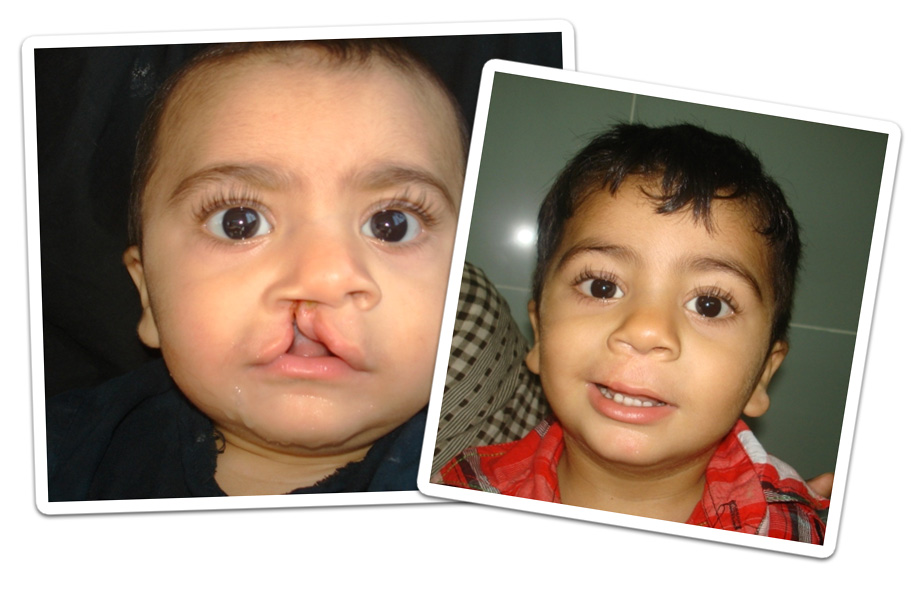You get a great feeling...
“You get a great feeling when you see children you have operated on before & after they have healed”
Surgeons from East Yorkshire have been in Pakistan operating on children whose families cannot afford surgery. Health reporter Emma Wright speaks to charity leader Nick Hart.
They can literally put a smile on a child’s face, just with a simple operation. The moments spent on the surgery table make a huge difference to a young person’s life, yet they are a privileged few can afford. Many families in ~Pakistan face the stigma of unsightly injuries and disabilities because they cannot pay for the simple treatment needed to correct them.
This is why a group of dedicated medical staff from East Yorkshire visit the country twice a year, operating on dozens of patients in a week. Their latest visit helped 71 patients, with two surgeons operating simultaneously.
Their main focus is children with cleft lip and palate – a deformity of the mouth and nose which can lead to speech, breathing and eating problems.
“There was a 14-year-old girl we met who had never been to school because she was bullied so much,” – said East Yorkshire surgeon Nick Hart.
Her parents couldn’t afford the surgery. She couldn’t speak very well and had no education, but we managed to help her to some extent by performing the surgery. We never seem to be able to do enough, and there will always be more patients who need help, which is why it’s a case of the more people who do things, the better.
“I used to give talks in schools about what we do and I would say ‘when you leave school, do something for other people’.
“It doesn’t matter how small how small it is. Just do something.”
The medical team that flies out to Pakistan is part of the Overseas Plastic Surgery Appeal (OPSA). The East Yorkshire-based charity fundraises throughout the year to be able to travel there to help poor communities. With each cleft lip and palate operation costing an average of £200 on top of travel expenses, medical equipment and drugs, the money raised at each event soon disappears.
“It costs about £1000 for each person to go over and come back, and we have to take medical equipment with us as well,” – said Mr Hart.
“We stay with a family who run the hospital we operate in and they look after us and provide accommodation, so that is a big contribution.”
“With about eight people travelling from the UK, it helps that we don’t have to pay for hotels.”
“We aim to always go twice a year, and the two trips can cost up to £20000.”
“We get a lot of our equipment sponsored by companies, but we still have to buy a lot of it in, too.”
“Spire Hospital, Hull and East Yorkshire Hospitals NHS Trust and St Hugh’s in Grimsby are all very good at helping us out.”
Although over the years the charity has helped countless children, OPSA is always looking to achieve more and is working on research around what causes cleft lip and palate in the first place. The team has been doing work with the university in Gujrat.
Mr Hart said: “They’re looking into the genetics of cleft lip and palate. People in the communities we’ve worked in tend to marry close relatives. The closer the relative, the greater the risk of cleft lip and palate.”
“We are trying to find out what the links are between their chromosomes and cleft lip and palate so in the future we can pinpoint them and, you never know, we may be able to find a treatment, which can eradicate the condition.”
When the medical staff return to the UK, there is no time to rest. Work has to be done behind the scenes ready for the next trip.
“An enormous amount of work goes on,” – said Mr Hart.
“Not just fundraising, but getting equipment and donations of equipment. A huge amount of people have been generous to us with donations, charity sponsorship and those give up their time. “We couldn’t do it without our simple surgical procedures can out an end to years of bullying and torment, as well as giving children a better standard of living when it comes to speech, eating and drinking.
The conditions the team works in are nothing like the NHS standards in the UK and they work long hours to see as many people as possible in the short time they are in Pakistan.
So what makes all the hard work, time and effort worth it?
“You get a tremendous feeling when you see patients you have operated on before and then see them when they have healed,” said Mr Hart.
“It’s just tremendous, there is no other word.”

